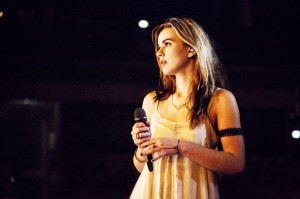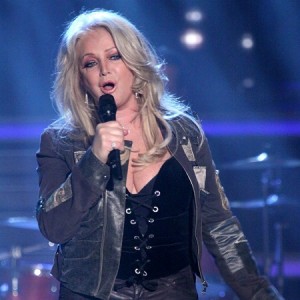Eurovision Song Contest 2013
Now in its 58th year, few things in life are as dependable as the lunacy of the Eurovision Song Contest. Last week, it was Sweden’s turn to play host as 26 acts took to Malmo to battle it out for Europe’s premier songwriting prize, and it’s safe to say that the contest hasn’t lost any of its wacky charm.
The nine-million viewers who tuned in to the BBC’s coverage will no doubt have missed the dulcet tones of Terry Wogan, previously one of the show’s highlights for those watching at home. These days, he’s been replaced by BAFTA winner and fellow Irishman Graham Norton, who appears to have taken to his compatriot’s habit of sounding utterly bemused by the chaos around him.
And with good reason: the quality of the music on offer was, as ever, a mixed bag of garish Euro-pop that often relied on glitter-ball extravagance to stand out. Act after act took to the stage, armed with an array of wind machines and dry ice in their pursuit of a memorable hook.
 Bookies’ favourites Denmark nailed the formula this year, as 20-year-old Emmelie de Forest amassed 281 points on her way to a convincing victory, ahead of runners-up Azerbaijan. Her song, ‘Only Teardrops’, featured a gimmicky-but-relentlessly-catchy tin whistle melody, and percussion arrangements which strongly recalled Florence & The Machine.
Bookies’ favourites Denmark nailed the formula this year, as 20-year-old Emmelie de Forest amassed 281 points on her way to a convincing victory, ahead of runners-up Azerbaijan. Her song, ‘Only Teardrops’, featured a gimmicky-but-relentlessly-catchy tin whistle melody, and percussion arrangements which strongly recalled Florence & The Machine.
Elsewhere, Romania’s Cezar donned a bizarre, vampire-themed number while treating us to some terrifying falsetto work, and Dutch entry Anouk went all Lana Del Rey with a song that its writer claimed was “too good for Eurovision”.
Here at Warwick, though, it was the kilted Greeks who were crowd favourites, as cheers erupted throughout a packed Mighty Duck every time they bothered the scoreboard. Their raucous entry took an endearing approach to the country’s austerity measures, featuring possibly the world’s tiniest mandolin and the bonkers sing-along chorus of “Alcohol! Alcohol! Alcohol is free!”
Here at Warwick, it was the kilted Greeks who were crowd favourites…”
The UK was represented by Bonnie Tyler, here singing with a surprisingly reserved voice for those acquainted with the bombast of ‘Total Eclipse Of The Heart’. Her entry, ‘Believe In Me’, was a passable effort that took her up to 19th place with 23 points: a marginal improvement on Engelbert Humperdink’s total of 12 last year. Hardly a sensational return, but hey: at least it didn’t come last.
 That dubious honour went to Ireland’s Ryan Dolan. A little harsh, perhaps, for a song that may simply have been overlooked by virtue of being last in the running order. Most viewers, it seems, had made their minds up by the time Dolan took to the stage.
That dubious honour went to Ireland’s Ryan Dolan. A little harsh, perhaps, for a song that may simply have been overlooked by virtue of being last in the running order. Most viewers, it seems, had made their minds up by the time Dolan took to the stage.
Not that the result particularly matters. The competition’s notorious voting system is just as geopolitical as ever; few spectators will have been shocked at the Norwegians’ cry of “12 points to Sweden”.
The unenviable task of mediating this madness was performed – remarkably – by a genuinely charming host in the form of Petra Mede. She topped off the show with a cabaret number that touched on all manner of Swedish stereotypes (yes, even IKEA), as well as some surprisingly political content from paternity leave to gay marriage.
At a time when the Euro-scepticism of UKIP has made headlines for its gains in British politics, tonight’s performances were rounded out with a simple but salient message: “We Are One”. A little idealistic, perhaps, but the sea of flags among the 11,000-strong crowd certainly made for a compelling image.
Yes, the voting is silly and the music is ham-fisted, but love it or hate it, Eurovision remains one of those rare events that can be watched by everyone from the most avid music connoisseur to your great aunt Mildred. In a refreshing departure from the X-Factors of this world, there are no sob stories or put-downs at the hands of Simon Cowell here; just a group of musicians earnestly trying to represent their respective countries without taking themselves too seriously. And for that, it’s hard to begrudge it.

Comments (1)